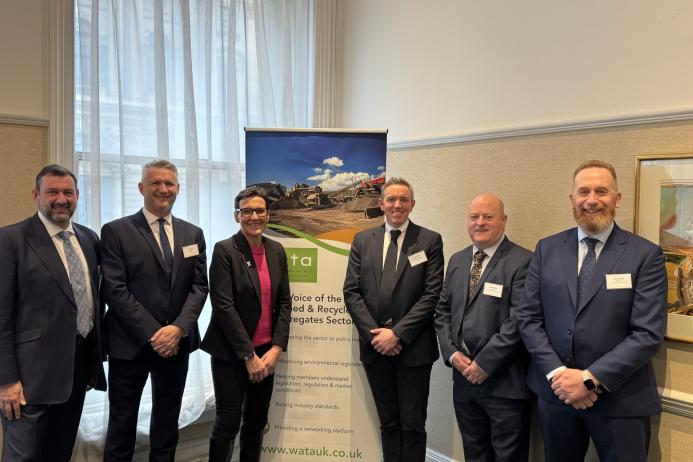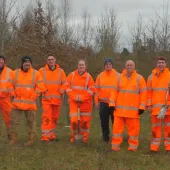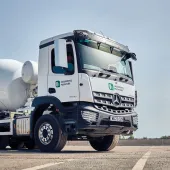WATA raises washed aggregates industry profile
Washed Aggregates Trade Association showcases material recycling benefits to MPs at Westminster event
THE Washed Aggregates Trade Association (WATA) hosted a parliamentary drop-in session on 25 November to raise awareness of the sector and encourage MPs to support the growing washed aggregates industry.
The event highlighted the environmental contribution of washed aggregates. This sector diverts almost one million tonnes of waste from landfill each year by washing and recycling used materials such as soil, sand and gravel. The resulting products offer a sustainable alternative to virgin aggregates, helping to reduce the industry’s reliance on finite natural resources.
WATA emphasised that each tonne of recovered washed aggregate produced in the UK helps cut carbon emissions, strengthens the circular economy and supports national sustainability goals. The association also underlined the sector’s role in contributing to the UK’s Net Zero 2050 target and ongoing work linked to the Government’s Resource and Waste Strategy.
The UK already leads Europe in the use of recycled aggregates, with repurposed materials accounting for around 30% of the market. However, WATA says the washed recycled aggregates sector remains under-represented within the wider construction supply chain despite its growing contribution.Andy Hill, CEO of WATA, commented: 'Washed and recycled aggregates are a critical part of the UK's circular economy. WATA is a relatively new trade body, and we are keen to get MPs and the Government on board to learn about how our sector can help the UK to reach its net-zero goals.'
According to WATA, around 20.5 million tonnes of construction, demolition and excavation waste are washed and recycled each year, producing approximately 8–9 million tonnes of cleaned and sized sand, and 2–4 million tonnes of fine mineral material.
Mr Hill concluded: ‘We would like to see a minimum requirement of 35% of washed recycled aggregates to be used in all publicly funded infrastructure projects. This would reduce reliance on primary extraction, cut carbon emissions and demonstrate the Government’s commitment to building a circular economy in practice – not just policy.’










